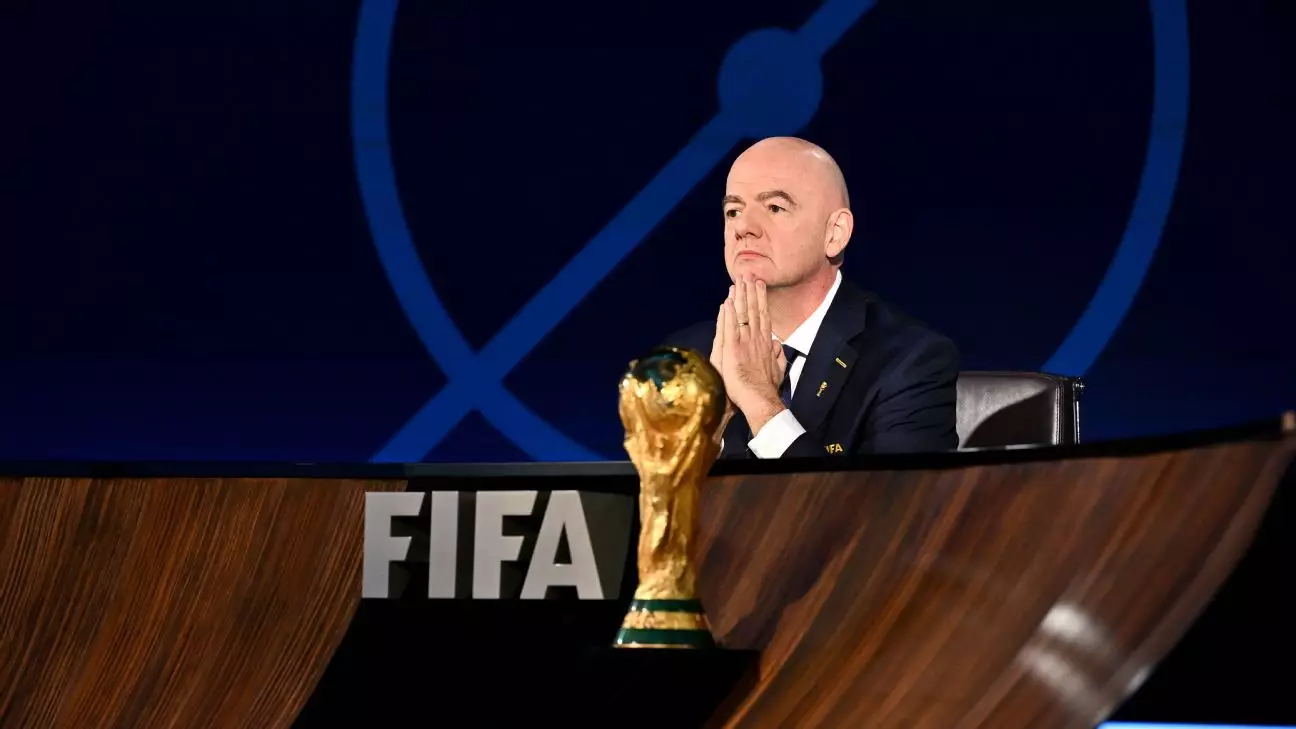FIFA’s recent announcement regarding the hosting of the 2030 and 2034 World Cups marks a pivotal moment in the landscape of global football. With the tournaments set to be held in Morocco, Portugal, and Spain, alongside a modest inclusion of Uruguay, Paraguay, and Argentina for the inaugural matches, there is plenty to unpack about this unprecedented decision. The choice of Saudi Arabia as the sole host for the 2034 tournament raises significant questions about international dynamics, economic interests, and football’s broader implications.
The 2030 World Cup not only celebrates its 100-year anniversary since the inaugural tournament was held in Uruguay, but also represents a unique blend of continents coming together. The inclusion of three European nations alongside South American hosts showcases a spirit of unity and cooperation, proving that football transcends borders. Gianni Infantino, FIFA’s president, emphasized this idea when he stated that the expansion and diversity of hosting nations will enhance the tournament’s quality rather than dilute it. However, one must speculate whether this new structure genuinely introduces higher-quality matches, or merely creates logistical challenges which could overshadow the fans’ experience.
Saudi Arabia’s uncontested bid for the 2034 World Cup is a focal point of contention in the football community. Critics of FIFA’s bidding process, like the Norwegian Football Federation, have expressed disillusionment with the transparency and fairness of how hosting rights are awarded. Their stance raises an important question: does the privilege afforded to one nation stifle competition and the potential for other nations to showcase their footballing prowess? The global football community thrives on competition, and limiting the bidding process to a single contender could lead to growing resentment among the wider membership of FIFA.
Compounding the complexity of the 2034 World Cup is the looming shadow of the ongoing tensions between FIFA and major European leagues, such as the Premier League and LaLiga. The prospect of a winter World Cup in Saudi Arabia poses significant challenges to existing football calendars. If these leagues do not align with FIFA’s plans, players may face grueling travel and schedule disruptions. This potential clash raises crucial concerns regarding player welfare and the integrity of domestic competitions, emphasizing the need for dialogue and collaboration within the football community.
As FIFA prepares for these landmark tournaments, the journey ahead will undoubtedly be tumultuous. The excitement surrounding the World Cups must be balanced with critical conversations about hosting fairness, player health, and the future of international football relations. The spirit of the World Cup lies in its ability to bring people together through sport, and as we approach 2030 and 2034, that ideal must remain at the forefront of FIFA’s initiatives. Only time will tell how these decisions will resonate beyond the confines of the pitch and shape the beautiful game for generations to come.

